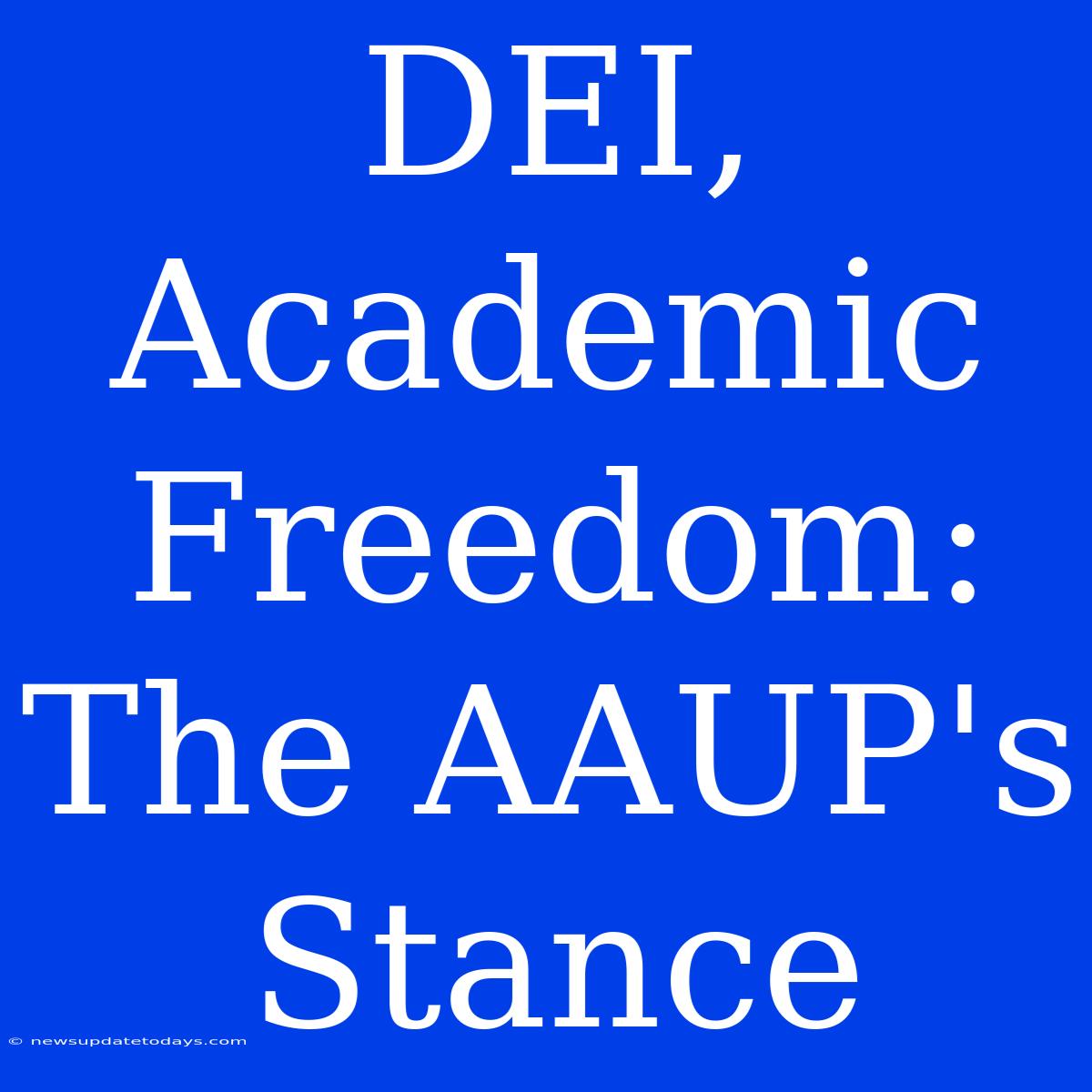DEI, Academic Freedom: Navigating the Complex Terrain of the AAUP's Stance
The intersection of Diversity, Equity, and Inclusion (DEI) initiatives and academic freedom is a complex and often contentious area within higher education. The American Association of University Professors (AAUP), a leading voice in protecting academic freedom, has weighed in on this evolving landscape, offering nuanced perspectives that require careful consideration. This article delves into the AAUP's stance, examining its principles and addressing potential conflicts.
Understanding the AAUP's Commitment to Academic Freedom
The AAUP has long championed academic freedom as a cornerstone of higher education. Their definition emphasizes the professor's right to:
- Freedom of inquiry and research: The ability to explore any topic, regardless of potential controversy, guided solely by academic rigor and intellectual curiosity.
- Freedom of teaching: The right to present diverse perspectives and engage students in critical thinking, fostering intellectual growth and debate. This doesn't equate to the freedom to indoctrinate but rather to engage in open and robust discussions.
- Freedom of expression: The capacity to communicate their findings and opinions, whether through publications, presentations, or public statements, without fear of reprisal.
These freedoms are not absolute; they are bounded by the responsibilities of scholarship and the need to maintain a respectful academic environment.
DEI Initiatives and Potential Conflicts
The rise of DEI initiatives, aimed at creating more inclusive and equitable learning environments, has sometimes led to perceived tensions with academic freedom. Concerns arise when:
- DEI policies restrict intellectual inquiry: Some argue that overzealous DEI initiatives might stifle debate on sensitive topics, discouraging the free exchange of ideas deemed potentially offensive or insensitive.
- Faculty face pressure to conform to specific viewpoints: The fear exists that faculty might self-censor their research or teaching to avoid potential accusations of bias or insensitivity, effectively chilling academic discourse.
- Assessments of faculty performance incorporate DEI metrics: This can lead to concerns that evaluations prioritize adherence to DEI goals over academic merit, potentially undermining the assessment of scholarly work.
The AAUP's Nuanced Approach
The AAUP recognizes the importance of DEI initiatives in creating a more just and equitable academy. However, they emphasize that these goals should not come at the expense of academic freedom. Their stance calls for:
- Careful consideration of policy implications: DEI policies must be drafted and implemented in a way that protects academic freedom and avoids undue restrictions on intellectual inquiry.
- Emphasis on open dialogue and robust debate: Creating inclusive environments requires fostering respectful discussions, even on controversial topics.
- Protection against retaliation for expressing unpopular views: Faculty should not face professional repercussions for engaging in good faith scholarship or teaching, even if their perspectives challenge prevailing norms.
- Transparency and due process: Any disciplinary actions related to faculty expression should adhere to transparent procedures and provide opportunities for due process.
Navigating the Challenges
The successful integration of DEI initiatives and academic freedom requires a delicate balancing act. Open communication, clear policies that respect both principles, and a commitment to fostering a culture of intellectual freedom are crucial. The AAUP's guidance provides a framework for navigating this complex terrain, emphasizing the importance of both inclusivity and the free exchange of ideas within higher education. Further discussion and ongoing engagement are needed to ensure that both DEI goals and academic freedom are upheld within the academic community.

